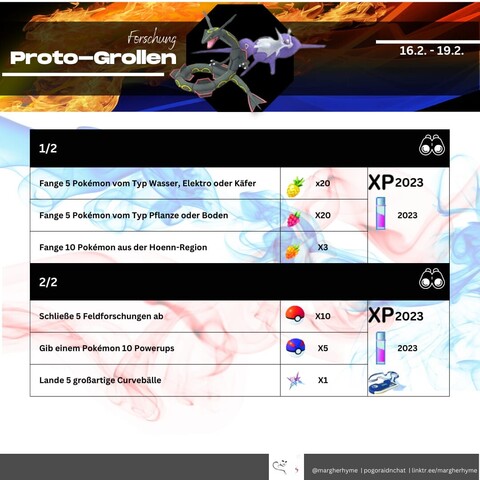avelino · @avelino
345 followers · 13 posts · Server clj.socialAncient Sounds · @ancientsounds
406 followers · 1609 posts · Server mastodonapp.ukAudio Etymologies of the Day
"Over" comes from Proto-Indo-European *h₁uper- [hʉpeɾ] (the
comparative form of *h₁upo “up”), something like this (listen):
🔈http://www.ancientsounds.net/eastern-origins/over-from-PIE-huper.wav
*h₁uper- also developed into Sanskrit उपरि upari:
🔈http://www.ancientsounds.net/eastern-origins/PIE-huper-to-Sanskrit-upari.wav
and Persian ابر abar:
🔈http://www.ancientsounds.net/eastern-origins/PIE-huper-to-Persian-abar.wav
as well as Ancient Greek ὑπέρ (hyper) and Latin super.
@linguistics #audio #etymology #phonetics #EnglishLanguage #Proto-Indo-European #Sanskrit #Persian
#audio #etymology #phonetics #englishlanguage #Proto #Sanskrit #Persian
Ancient Sounds · @ancientsounds
320 followers · 924 posts · Server mastodonapp.ukAudio Etymologies of the Day
In a previous I post simulated how "light" (brightness) comes from #Proto-Indo-European *leuk-. "Light" in weight comes from a different PIE word, *h₁lengʷʰ-to-. My simulation ignores the initial *h₁, as it was lost, and the suffix -to-, leaving just [lɐŋgʷʰ] for the root:
🔈http://www.ancientsounds.net/eastern-origins/light-from-PIE-lengwh.wav
*h₁lengʷʰ- also developed into #Sanskrit लघु laghu, something like this:
🔈http://www.ancientsounds.net/eastern-origins/PIE-leuk-to-Balochi-roch.wav
@linguistics #audio #etymology #phonetics #EnglishLanguage
#Proto #Sanskrit #audio #etymology #phonetics #englishlanguage
Ancient Sounds · @ancientsounds
319 followers · 914 posts · Server mastodonapp.ukAudio Etymologies of the Day
"Light" (brightness) comes from #Proto-Indo-European *leuk- [lɘʊk], something like this:
🔈http://www.ancientsounds.net/eastern-origins/light-from-PIE-leuk.wav
*leuk- also developed into words for "day" in Indo-Iranian languages, e.g. #Balochi روچ roʧ, something like this:
🔈http://www.ancientsounds.net/eastern-origins/PIE-leuk-to-Balochi-roch.wav
#Sanskrit रोचते rochate "shine":
🔈http://www.ancientsounds.net/eastern-origins/PIE-leuk-to-Sanskrit-rocate.wav
#Kurdish roʒ:
🔈http://www.ancientsounds.net/eastern-origins/PIE-leuk-to-Kurdish-roj.wav
#Tajik рӯз, Persian روز ruz:
🔈http://www.ancientsounds.net/eastern-origins/PIE-leuk-to-Tajik-ruz.wav
@linguistics #audio #etymology #phonetics #EnglishLanguage
#Proto #balochi #Sanskrit #kurdish #tajik #audio #etymology #phonetics #englishlanguage
margherhyme · @margherhyme
61 followers · 427 posts · Server mastodon.world#Proto-Grollen #Forschung
#gotour #hoenn #pokemongo
#Proto #forschung #gotour #hoenn #pokemongo
margherhyme · @margherhyme
61 followers · 422 posts · Server mastodon.world#Proto-Grollen #Forschung
#gotour #hoenn #pokemongo
#Proto #forschung #gotour #hoenn #pokemongo
margherhyme · @margherhyme
58 followers · 367 posts · Server mastodon.world#proto-grollen #Event #rayquaza #pokemongo #pokemongoapp
#Proto #event #rayquaza #pokemongo #PokemonGOApp
margherhyme · @margherhyme
58 followers · 365 posts · Server mastodon.world#Event #proto-grollen #rayquaza #pokemongo #pokemongoapp
#event #Proto #rayquaza #pokemongo #PokemonGOApp
Ancient Sounds · @ancientsounds
224 followers · 520 posts · Server mastodonapp.ukMy audio #etymology simulations are collected at http://ancientsounds.net (very much a work in progress).
I'm also compiling/editing past tw**ts about those audio #etymologies into an alphabetically-ordered blog, so that we can look up examples:
http://ancientsounds.net/blog.html
#phonetics #etymology #philology #Proto-Indo-European
#etymology #etymologies #phonetics #philology #Proto
Shaula Evans · @ShaulaEvans
527 followers · 761 posts · Server zirk.usRussian князь (knyaz), meaning "prince", goes back through Proto-Slavic to the same Proto-Germanic root ("*kuningaz") that gives rise to the English word "king".
Other descendants of the root meaning king include:
Dutch koning
Finnish kuningas
German König
Lithuanian kunigas, kuningas
Norwegian (Nynorsk) kong, konung
Yiddish: קיניג (kinig)
#Etymology #Proto-Slavic #Proto-Germanic
Johan Schalin, PhD · @iohannan
115 followers · 110 posts · Server lingo.lolstaar: the verb for ’stand’, just as the verb for ’go’ gaa(r) defies a well-known exceptionless sound law and mysteriously retains the vowel /a:/ pro expected <å>. This coincides with a strange #Proto-#Germanic history of these two verbs, as in German gehen and stehen.
https://www.researchgate.net/publication/331197597_GA-_'GO'_STA-_'STAND'_IN_PGMC_IN_DIALECTAL_EASTERN_SCANDINAVIAN
Ancient Sounds · @ancientsounds
81 followers · 125 posts · Server mastodonapp.uk#ancient #sounds #audio #etymology of the day:
The English word "have" comes from #Proto-Indo-European *kh₂péh₁- (pronounced something like [kapé:]), something like this, listen:
🔈http://www.ancientsounds.net/eastern-origins/have-from-PIE-kh2peh1.wav
The same root developed into #Sanskrit कपटी kapaʈī, a “holding” – as much as can be held in the two hands joined, something like this:
🔈http://www.ancientsounds.net/eastern-origins/PIE-kh2peh1-to-Sanskrit-kapaTii.wav
#ancient #sounds #audio #etymology #Proto #Sanskrit #phonetics #philology




